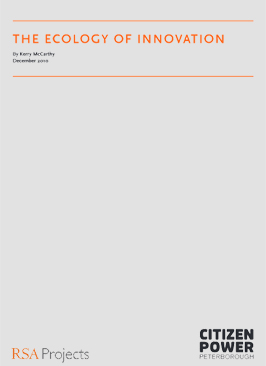The nature of the social and environmental challenges facing our society means we need more community involvement as well as infrastructural change. Habits and lifestyles contribute to many of these challenges and communities can be particularly effective in supporting behaviour change in those around them. The emerging emphasis on the power of civic society to tackle social and environmental problems is further reflected in the government’s Big Society agenda. Community involvement is also central to developing more effective and responsive public services.
The role for communities is not just about increased dialogue between policy makers, service providers and the people they serve; it is also about communities taking action to design and deliver their own responses. There is still much to learn about working effectively with communities; how to achieve broader participation, involving more people and different interests,and how to spread innovative practice and deeper participation at the local level, so more people are supported to lead new responses to social and environmental challenges.
In order to continually improve the support that communities need to act means engaging with two issues. First, the blocks and motivations people need to get more involved. Second, not all people have the same opportunities or capacity to get involved in their communities. Research shows that people are particularly motivated to volunteer by wanting to improve things, to help people and to act on causes important to them. For many people time is the biggest barrier to getting involved, even in relatively low commitment processes, such as local public consultation processes.
Other obstacles include a lack of opportunity related to a lack of knowledge of how to get involved or because the same people are always invited to take part. Limited access due to geography and transport issues can also play a role. Participation is also influenced by the extent to which people identify with an issue or community, and believe that their views will be listened to. Individual people live very different lives, have differerent responsibilities to and for others, spend different amounts of time working, and have different levels of energy, health, confidence and self belief about their ability to contribute.
Those in stronger economic and social positions, and who are already networked into opportunities, will have a head start towards deeper and more empowered participation. More is being asked of communities, and more power and responsibility is being devolved to them. In this context, better understanding the capacity, motivation and opportunity needed to support people to act, is more important than simply calling for action. The Sustainable Citizenship project will contribute new understanding by working with local partners to support communities to grow a greener Peterborough.
pdf 227.4 KB
Contributors


Be the first to write a comment
Comments
Please login to post a comment or reply
Don't have an account? Click here to register.